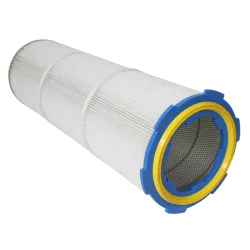Understanding Air Filters: How They Work and Why They Matter
2024-08-12
Air filters are essential components in various systems, from home HVAC systems to automotive engines. They play a crucial role in maintaining air quality, improving efficiency, and extending the lifespan of equipment. In this blog post, we’ll explore how air filters work, the different types available, and why they are important for both health and equipment performance.
1. What is an Air Filter?
An air filter is a device designed to remove particles, contaminants, and impurities from the air. It functions by trapping airborne pollutants, such as dust, pollen, and smoke, before the air enters a system or space. This helps to ensure that the air remains clean and safe for breathing and that systems operate efficiently.
2. How Air Filters Work
Air filters work based on several mechanisms, including:
- Mechanical Filtration: This is the most common method, where particles are physically trapped by the filter media. Mechanical filters use a mesh or porous material to capture particles as air passes through.
- Electrostatic Filtration: Some filters use electrostatic forces to attract and capture particles. These filters create an electric charge that attracts dust and other particles, which stick to the filter material.
- Adsorption: In certain filters, particles are removed through adsorption, where contaminants adhere to the surface of the filter media. Activated carbon filters, for example, use adsorption to remove gases and odors from the air.
- Ultraviolet (UV) Light: UV air purifiers use ultraviolet light to kill or deactivate microorganisms, such as bacteria and viruses, present in the air.
3. Types of Air Filters
There are several types of air filters, each designed for specific applications and purposes:
- HEPA Filters: High-Efficiency Particulate Air (HEPA) filters are highly effective at trapping particles as small as 0.3 microns with an efficiency of 99.97%. They are commonly used in residential and commercial HVAC systems to improve indoor air quality.
- Activated Carbon Filters: These filters use activated carbon to remove odors, gases, and volatile organic compounds (VOCs) from the air. They are often used in combination with HEPA filters for comprehensive air purification.
- Electrostatic Filters: Electrostatic filters use an electric charge to attract and capture particles. They are reusable and can be cleaned, making them a cost-effective option for some applications.
- Pleated Filters: Pleated filters have a larger surface area compared to standard flat filters, which allows them to capture more particles and extend the time between replacements. They are commonly used in HVAC systems.
- HEPA-Type Filters: These filters are similar to HEPA filters but may not meet the same stringent standards. They are often used in smaller air purifiers or budget-friendly options.
4. The Importance of Air Filters
Air filters play a vital role in maintaining a healthy and efficient environment:
- Improving Indoor Air Quality: Air filters help to remove allergens, dust, and pollutants from the air, reducing the risk of respiratory issues and allergies.
- Protecting Equipment: In HVAC systems and engines, air filters prevent dust and debris from entering and damaging sensitive components, which helps to maintain performance and extend the lifespan of the equipment.
- Enhancing Energy Efficiency: A clean air filter allows air to flow freely through the system, reducing the strain on the motor and improving overall energy efficiency. Clogged or dirty filters can cause systems to work harder, leading to higher energy bills.
- Reducing Maintenance Costs: Regularly replacing or cleaning air filters can help to prevent costly repairs and maintenance by keeping systems running smoothly and efficiently.
5. Choosing the Right Air Filter
Selecting the right air filter depends on several factors:
- Purpose and Application: Consider the specific needs of your system or space. For example, a HEPA filter may be ideal for a home with allergy sufferers, while an activated carbon filter may be better for removing odors.
- Filter Size: Ensure that the filter fits properly in your system or appliance. Measure the dimensions and check the manufacturer’s specifications for compatibility.
- Filter Efficiency: Look for filters with a high Minimum Efficiency Reporting Value (MERV) rating for better particle capture. HEPA filters have a high efficiency rating and are suitable for demanding applications.
- Maintenance Requirements: Choose a filter that matches your maintenance preferences. Some filters are washable and reusable, while others need to be replaced periodically.
Conclusion
Air filters are a crucial component in maintaining clean air and efficient systems. By understanding how air filters work, the different types available, and their importance, you can make informed decisions about the best filters for your needs. Regular maintenance and timely replacement of air filters will ensure that you and your equipment enjoy the benefits of clean, filtered air.



